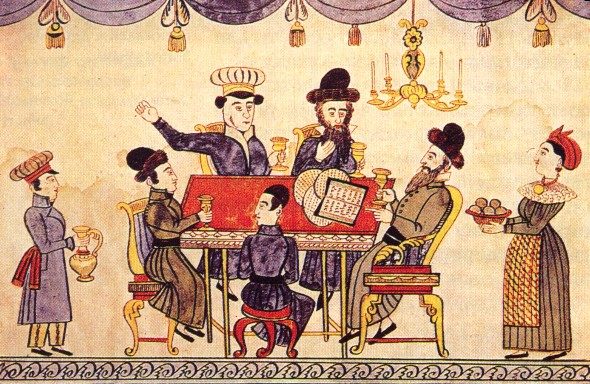Passover is a feast commemorating the emancipation of the Israelites from slavery in ancient Egypt. Passover derives from the word “Pesach”, meaning to pass through, to pass over. Pesach is also the name of the lamb sacrificed as an offering in the Temple on this feast.
When is Passover celebrated?

The festival of Passover spans for eight days and is celebrated in the early spring. The holiday begins on the 15th day of the Hebrew month of Nissan and ends on the 22nd of the same month.
Passover 2016 was celebrated starting Friday evening on April 22, and it ended Saturday evening, on April 30. The first seder was on the evening of the first day of the celebration, while the second seder took place on April 23, on a Saturday.
Passover 2017 will be commemorated starting Monday evening, April 10, through Tuesday evening, April 18.
What Is Passover?
If we are to give a Passover definition, the holiday stands for the exodus of the Jews from slavery in ancient Egypt. This feast originated in the Torah, where “Pesach” was a word assigned to the sacrificial lamb. It is also believed to stand for God’s “passing over” the homes of the Israelites during the 10th plague on the Egyptians.
Ultimately, this is a holiday celebrating freedom, and the story it tells is appreciated by people of all faiths. Passover is Z’man Cheiruteinu (in Hebrew), meaning The Season of Our Freedom.
A Short History of Passover
The story of the holiday originates from the Bible. The Torah recounts how the Israelites were enslaved in ancient Egypt by a vengeful Pharaoh, who feared them. God is said to have spoken to Moses, an Israelite man, instructing him to go to the Pharaoh and ask him to see the people free. But the Pharaoh refused, and Moses, acting as God’s messenger, brought down a series of ten plagues on ancient Egypt.
The last plague was named “Slating of the Firstborn”. What it means is that God killed each firstborn of the Egyptians, but left the children of the Israelites alive and unharmed. The outcome of this last plague was so atrocious that the Pharaoh finally gave in and set free the Israelites. However, he soon regretted the decision and chased the Israelites until they got trapped at the Sea of Reeds. Yet God parted the waters, and the Children of Israel could walk on dry land. God then closed the waters, drowning the Pharaoh and all of his soldiers.

The Jewish Written Law commands the observance of the seven days of Passover. Most Jews, no matter which part of the globe they inhabit, still follow this conjunction. Some Jews celebrate this holidays for eight days. The additional day was added around 700-600 B.C.E. when people were notified that the holiday had started by lighting up mountaintop bonfires. The extra day was added to prevent errors. Although we have reliable calendars today that allow Jews to know when the feast starts and ends, celebrating freedom even on the eighth day remains ingrained in their practice.
How is Passover celebrated?
The main event of the holiday is the seder. This is a festive meal where the story of the exodus (Haggadah) is recited in a set order. During the seven or eight days of the feast, it is forbidden to eat leavened foods. Hebrew tradition says that in their hurry to escape Egypt, the Jews did not have time to wait for bread to rise. As a result, they ate matzah, unleavened bread.
Prior to the celebrations, the Jews clean every corner of their houses and remove all leavened foods. Some people even burn these products, a process named biur chametz. But others just keep all the chametz in an area of the house hidden from sight and then sell the leavened foods. Chametz is usually sold for a symbolical amount of money.
When it comes to the foods eaten on this fest, they are unique. Apart from keeping it kosher, there are specific rules to follow when preparing food for Passover.

Besides matzah, Jews also eat beitzah (hard-boiled egg), charoset ( a sweet paste made out of fruits and nuts), maror (bitter herbs), salt water (as a symbol of the slaves’ tears), and karpas (a green vegetable).
But Pesach is not a time of deprivation, even though some foods are forbidden. It is about the joy of freedom that is also celebrated with music. There are many joyous songs played during the seder. Throughout the seder, it is also required to drink four cups of wine.
What Is the Proper Greeting for Passover?

Now that we know all about when and how Passover is celebrated, we should also get informed on what is the proper greeting.
Happy Passover in Hebrew can be worded as “Chag Sameach”, which translates into “Happy Holiday”.
IMAGE SOURCE: 1, 2, 3, 4